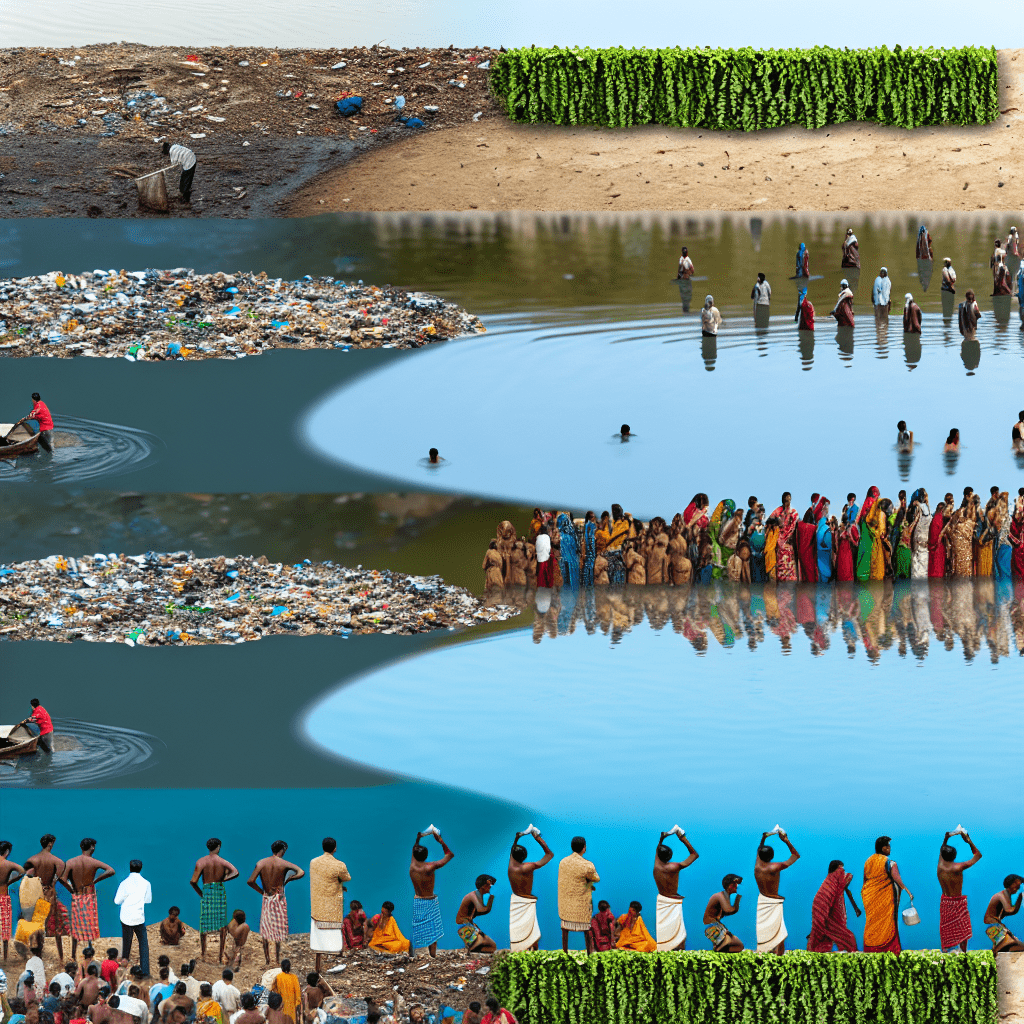”
India, home to the sacred Ganges and Brahmaputra rivers, grapples with formidable water quality problems. This article will elucidate these challenges, their roots, and offer possible solutions for cleaner, safer water.
Water quality issues in India largely stem from extensive industrial pollution, lack of adequate wastewater treatment, agricultural runoffs, and the intensifying impacts of climate change.
Dominant pollutants in India’s waters include heavy metals, harmful industrial effluents, untreated sewage, and excessive nutrients causing destructive algal blooms. These contaminants not only pose serious health risks but also disrupt the country’s rich aquatic ecosystems and overburden water treatment facilities.
Despite the implementation of numerous water management policies, such as the Clean India Campaign (Swachh Bharat Abhiyan), chronic water quality problems necessitate more comprehensive, sustainable approaches.
Overcoming India’s water quality issues requires implementing stricter regulation on industrial and agricultural pollutants, investing substantially in wastewater treatment infrastructure, promoting sustainable farming practices, and adopting climate-resilient water management strategies.
Furthermore, public involvement, increased awareness, and education play critical roles in combating these issues. Educational campaigns discussing water conservation, pollution prevention, and the broader implications of clean water can invoke needed societal behavior changes.
In conclusion, while the path towards enhanced water quality in India is steep and challenging, it is a journey that can certainly be undertaken. By focusing on more effective policies, embracing technological innovation, and nurturing public commitment to water stewardship, India can transition from murky rivers to purer, cleaner springs.
By FountainGO!

